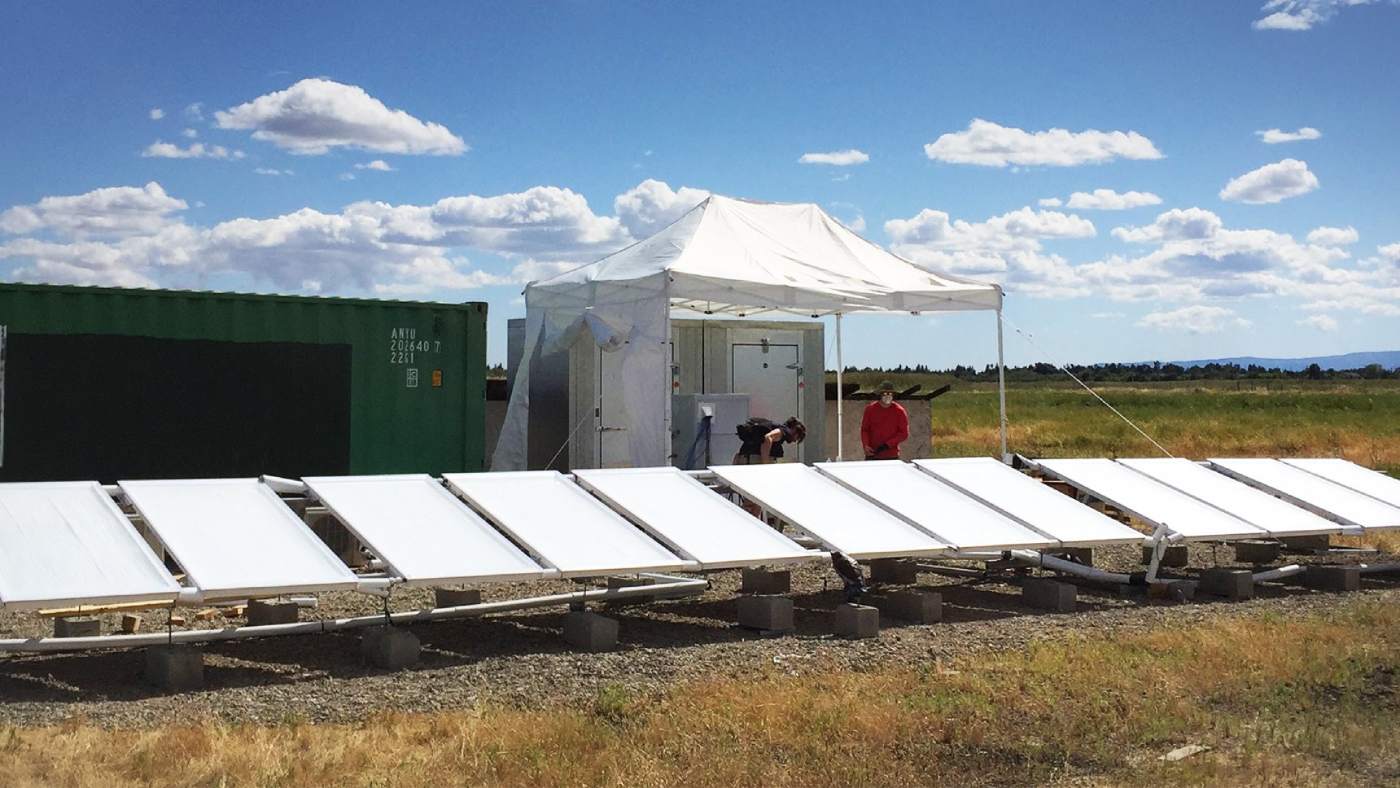A UCLA scientist reasoned that if a certain spectrum of warming rays is radiated out to the atmosphere during the day, it would cool whatever it left, potentially offering an alternative to traditional air conditioning.
An estimated 7% of global greenhouse gas emissions are generated through cooling systems, both for homes and transport, but as global temperatures continue to climb, the use of cooling systems for homes and businesses is expected to triple over the coming years.
SkyCool’s radiative panels can absorb all the heat-producing light from the sun, and rather than sending it back into the swirling cauldron of gasses that are heating the planet, expels it out into space.
If placed on the hood of a car, the film would not only reflect any light from the sun, but radiate away some of the heat from the engine; if placed above where water pipes run through a building, it would cool the water therein, reducing the load on air-conditioning systems.
See Professor Develops Technology That Cools People Down – Without Electricity or AC
#environment #cooling #energy #airconditioning
A radiative cooling film developed by a UCLA scientist can cool the air around it by 10°F by reflective infrared radiation from the sun.

